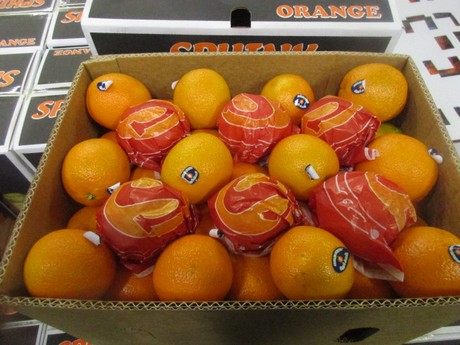
info.afrindex.com
China-Africa Trade Information Service

info.afrindex.com
China-Africa Trade Information Service

Image from Fresh Plaza
This year, Egypt might surpass Spain on the list of the biggest orange exporters, as was announced in 2018. Because of this, the North African country threatens the dominant position of Spain on the European market.
According to the report, an export of 1.65 million tonnes has been estimated for this year. Whether that figure will actually be achieved will have to be seen. In any case, the estimate means a considerable increase in export. In 2014 and 2013, the record of one million tonnes was passed, but export dropped in the following years.
For the Egyptian exporters, Russia, Saudi Arabia and China are the biggest export markets, but within Europe, the country has reported an increase for some years in a row as well. In 2013, the EU imported a total of 99 million euro of oranges. Four years later, that amount is 147.5 million euro. The Netherlands is an import transit port for the Egyptian citrus. Since 2014, the volume of Egyptian citrus arriving in Europe via Dutch ports has doubled. In 2014, 56,000 tonnes of Egyptian oranges arrived in the Dutch ports. In 2017, the counter was at 115,000 tonnes.
For export to grow like this, production also has to be increasing. In 2017, the country had 119,581 hectares of orange production. Compared to 2010, that area had increased by 18 per cent. In 2017, that area resulted in a harvest of more than 3 million tonnes of oranges. That was twice the amount of oranges harvest 20 years before that: 1.5 million tonnes. For comparison: Spain harvested more than 3.3 million tonnes of oranges in that same year. This corresponds to an increase of 18 per cent in 20 years.
The Egyptian sector profits from various sectors that make the citrus appealing on the global market. The Russian boycott of European and later Turkish citrus contributed to the chances for Egyptian exporters. Besides, labour costs are relatively low. Add to that the devaluation of the Egyptian pound, and the citrus becomes even more appealingly priced on the global market. Thanks to the decrease in the value of the currency, the fruit became relatively cheaper in, for instance, Europe. On 31 December 2018, the exchange rate was at 20.36 Egyptian pounds for one euro. Two years earlier, the currency ended the year with an exchange rate of 8.50 Egyptian pounds for one euro.